CERL and the Institute for Citizens & Scholars Host Affective Polarization Convening
Posted in News
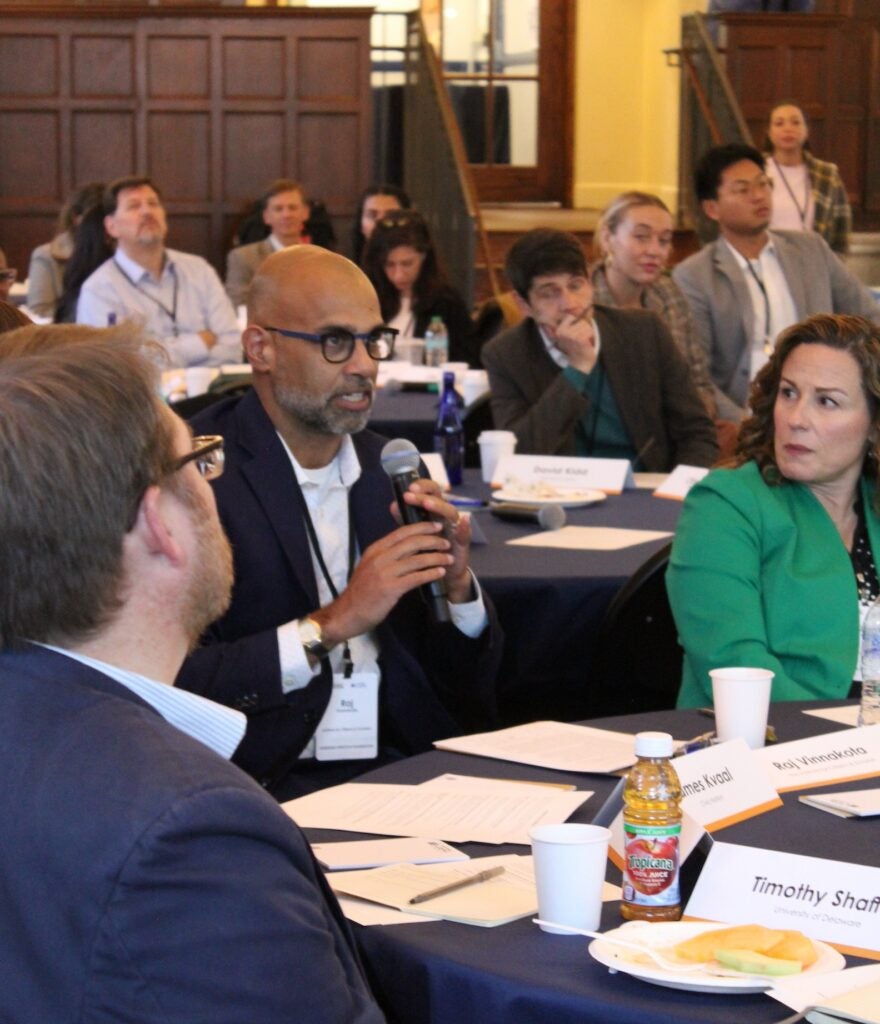
Washington, D.C. – The Civic Education Research Lab (CERL) and the Institute for Citizens & Scholars (C&S) hosted a convening on Assessing Affective Polarization Among Young People at Georgetown University on October 24, 2025. The convening brought together scholars, students, and practitioners from across the country to discuss current research that unpacked this complex development. The event built upon a gathering held at Georgetown last April that explored the sources, manifestations, and consequences of affective polarization from a range of perspectives.
“We frame these gatherings not primarily as academic conferences, but as conversations,” said Rajiv Vinnakota, president of C&S. “…so we can better understand how affective polarization looks.”
Polarization has become a defining characteristic of American politics and society. The perception that political divides have been deepening and are insurmountable is a prevalent narrative among academics, journalists, government officials, and political practitioners, as well as the general public. Traditionally, polarization has been defined in terms of differing views on issues, which is most evident among political elites. Over the past decade, the nature of partisan and ideological divisions has become more firmly rooted in animosity toward others than in issue differences, especially among the mass public.
Affective polarization is based on feelings of extreme dislike, distrust, and lack of empathy for those whose perceived political and personal identities are not aligned with one’s own. Affective polarization is personal. Partisan identity has become a fundamental social identity that impacts individuals’ emotions and behaviors. It is marked by a desire for social distance, a reluctance to interact with members of the vilified outgroup, and extreme negative appraisals of and incivility toward the perceived adversary. Democrats and Republicans both say that the other party’s members are hypocritical, selfish, and closed-minded.
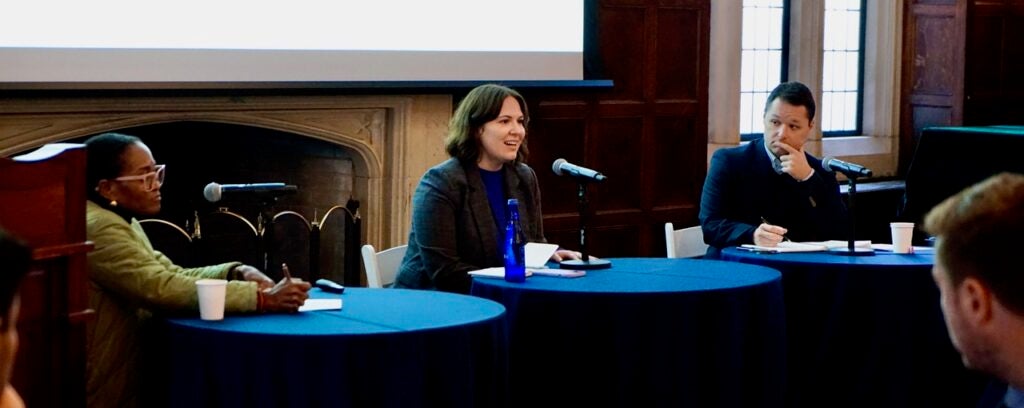
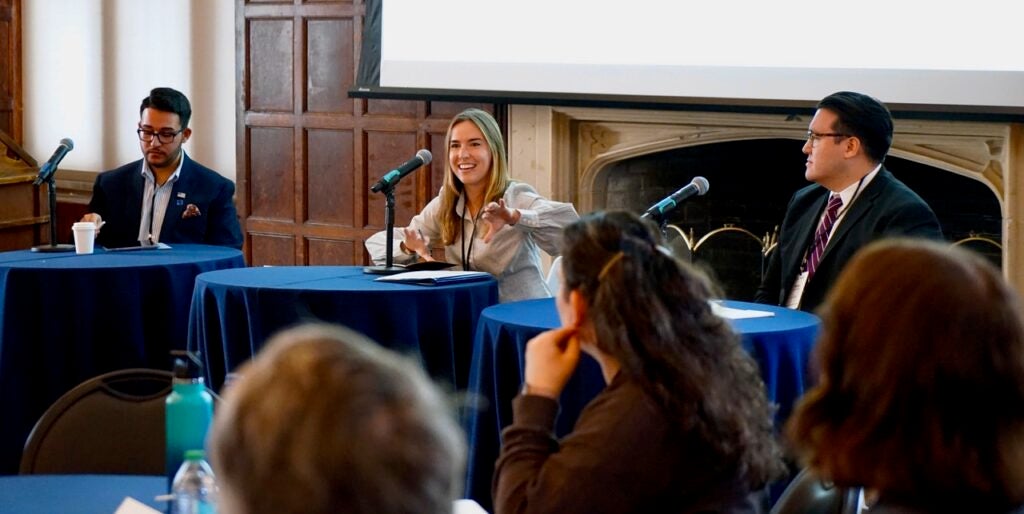
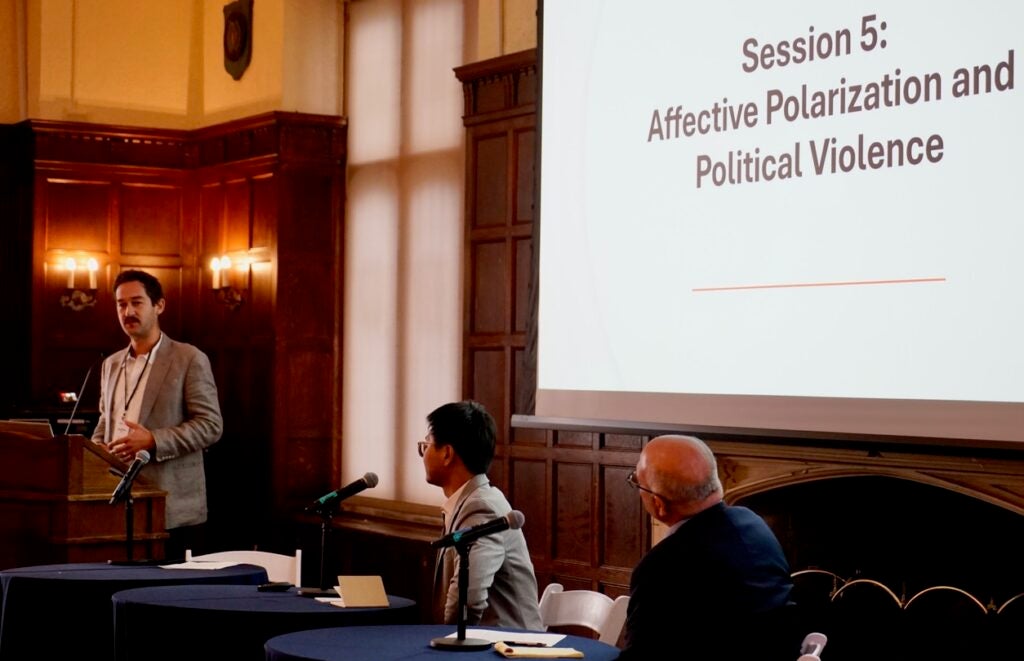
Assessing affective polarization was the focus of seven sessions that explored a variety of topics, including the role of K-12 education in shaping political attitudes and polarization; ways to reduce polarization through discussion and curriculum interventions; the influence of family, peers, and media on youth perceptions of polarization; and the relationship of affective polarization and political violence. Best practices for measuring polarization were a key part of the discussions.
At the conclusion of the convening, Vinnakota said he was “very optimistic” not only because of the research, but also because “there are a lot more people who believe in the value of this work and they are starting to stand up.”
Researchers have partnered with practitioners to explore ways of mitigating affective polarization through classroom initiatives and campus-wide programs. Professional connections have been made that have extended the work of the convenings to broader realms. An initiative on university campuses is exploring polarization’s impact on civic engagement.
The convening was made possible through the generous sponsorship of the Helios Foundation and Hewlett Foundation.
Below is a list of presenters and their research. Read more on CERL’s Substack post: Debriefing the Divide: What We Learned from Seven Conversations on Youth and Affective Polarization.
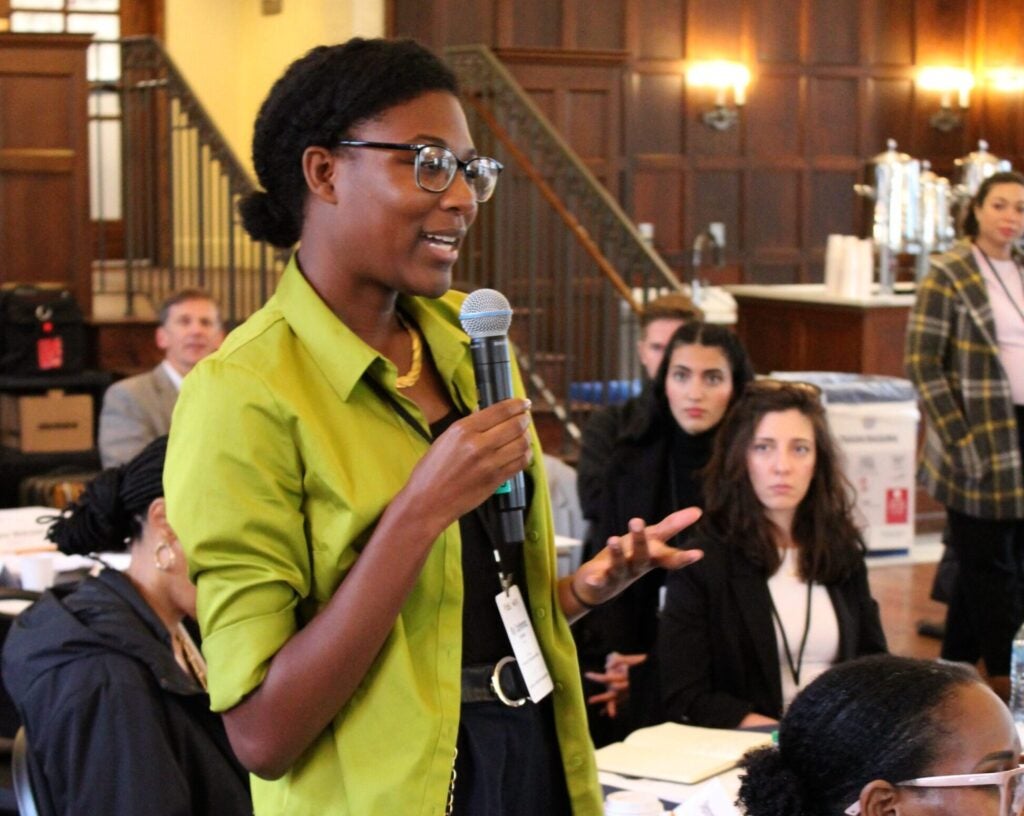
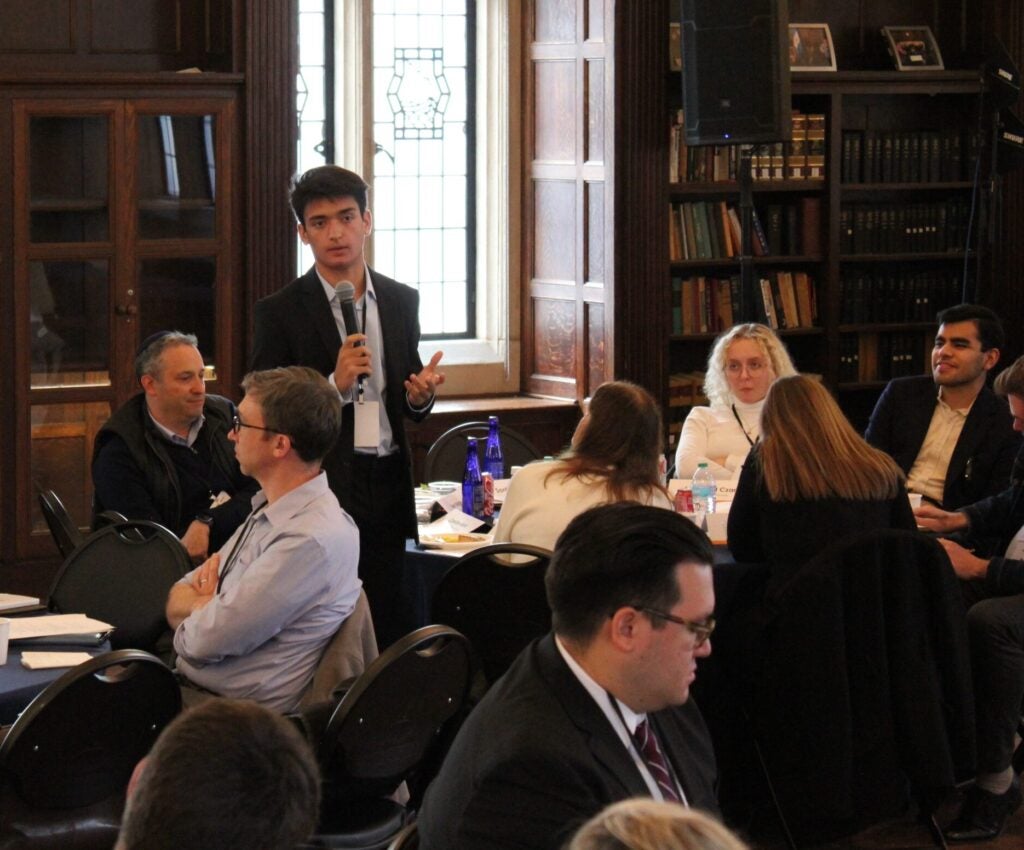
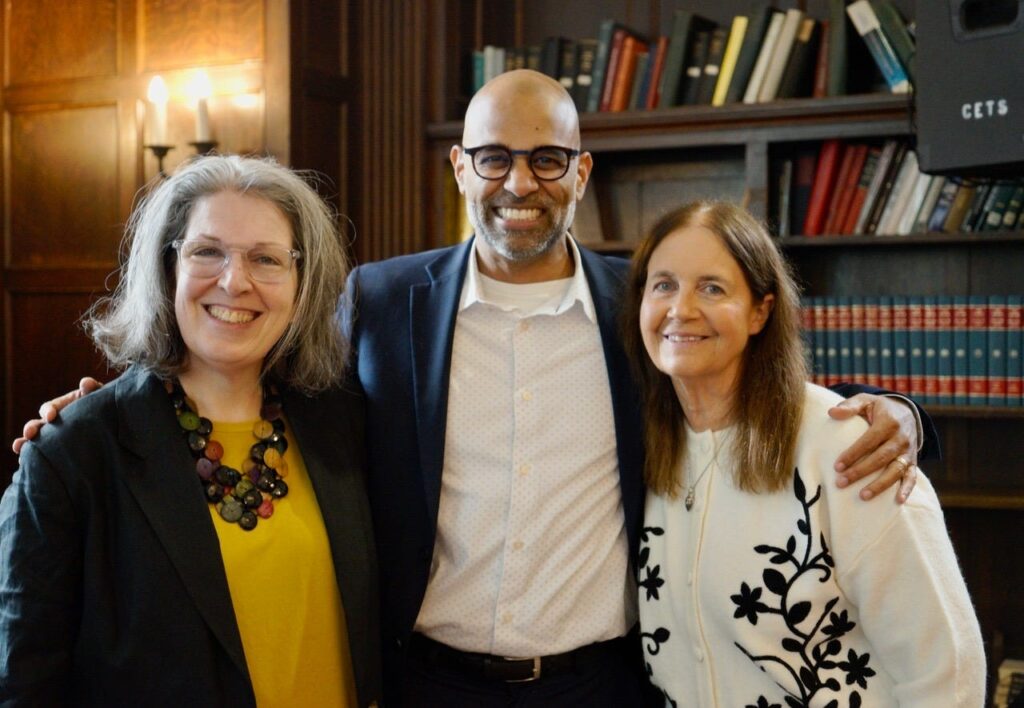
Affective Polarization Convening Research Presentation Sessions
Session 1: Affective Polarization in the K-12 Education Context
Assessing the Role of K-12 Social Studies Education on Political Polarization
Matt Nelsen, University of Miami
Youth Affective Polarization & Emotional Responses to DEI at Elite Independent Schools
Nora Gross, Barnard College, Columbia University
Session 2: Reducing Affective Polarization through Discussion
Evaluating Better Conversations: Metric Development and Assessment for a Multi-Phase, Campuswide Free Speech Program Addressing Affective Polarization
Kara Dillard & David Kirkpatrick, James Madison University
Reducing Affective Polarization with Historical Documents
Jason Giersch, University of North Carolina, Charlotte
Session 3: Family, Peers, Media, and Other Influences on Youth Affective Polarization
The Influence of Household Partisan Composition on Young Adolescents’ News Credibility Appraisals
Joshua Sacco, Stephen Song, Judithanne Scourfield McLaughlin, Wendy M. Rote, Chighaf Bakour, Logan Rance, Justin Martin, University of South Florida
Growing Divided: American Adolescents’ Perceptions of Political Polarization in Themselves and Others
Isobel A. Heck and Nicole H. Park, University of Rochester
Session 4: Young People and Polarization During the 2024 Presidential Election
Changes in Political Animus Among College Students During the 2024 Election
Natalie Doerfler, University of North Carolina, Charlotte
Peer Pressure: Polarization and Self-Expression of American Youth in an Online Focus Group
Peter de Guzman, D. Sunshine Hillygus, Max Allamong, Rylie Martin, Duke University
Session 5: Affective Polarization and Political Violence
Affective Polarization is Positively Associated with Approval of Political Violence
Yanlin Ren, Tufts University
The Parental-Filial Communication Dynamics Surrounding Political Assassination
R. Lance Holbert, University of Pennsylvania
Session 6: Identity, Engagement, and Affective Polarization
Participatory and Polarized? The Link Between Partisan Animosity and Political Engagement
Christopher Chapp, St. Olaf College and Logan Dancey, Wesleyan University
Good Faith Betrayed: Zero-Sum Asymmetry and Intragroup Threats to a Shared Identity Relate to Affective Polarization
David Kidd & Martino Ongis, Harvard University
Session 7: Mitigating Affective Polarization through Instructional Interventions
World Literature in Action: Bridging Youth Divides
Lidia Radi, University of Richmond
Narrowing the ‘Perception Gap’ through Civic Education
Diana Owen, Georgetown University
###
Institute for Citizens & Scholars (C&S)
C&S is on a mission to equip young people with essential civic skills to lead and transform a deeply divided nation. C&S partners with diverse leaders in higher education, business, and philanthropy to transform colleges, workplaces, and communities into hubs for civic development. Our collaborative approach designs targeted programs that build Gen Z’s abilities to find and use reliable information, engage in difficult conversations, and forge solutions across differences to strengthen America.
